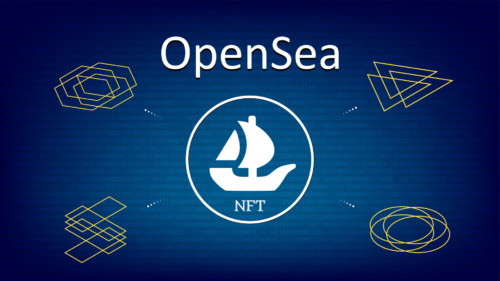NFT Creator Royalties Are Broken—Yuga Labs and Magic Eden Join Group Trying to Fix Them

The Open Metaverse Alliance (OMA3), a consortium of dozens of notable blockchain, NFT, and metaverse companies, announced Tuesday that it has established a working group to determine how best to standardize and ensure the survival of creator royalties on NFT marketplaces.
The working group will include numerous prominent crypto brands, including Yuga Labs, the company behind dominant NFT collection Bored Ape Yacht Club, and Magic Eden, the multi-chain NFT marketplace that began on Solana.
Creator royalties are fees, typically between 2.5% and 10%, that are tacked on to secondary sales of NFTs and designed to go straight to creators’ pockets. While their adoption was long considered a foundational tenet of the crypto ecosystem—one that benefited artists and creators more than traditional secondary markets for art and media—their enforcement has become increasingly threatened by market forces.
Following the onset of the current crypto bear market last year, a crop of upstart NFT marketplaces began eliminating creator fees, and some (such as Blur) offered gamified, financial incentives to users in a bid to lure customers from dominant NFT platforms like OpenSea.
Within months, the strategy showed itself to be astonishingly effective: By February of this year, Blur dethroned OpenSea as the largest NFT platform by trading volume. In August, OpenSea—after defiantly promising not to—announced that it too would stop enforcing creator fees.
As the companies that comprise the Open Metaverse Alliance see it, this shift poses an existential threat not just to the NFT ecosystem, but to the holy grail of metaverse development: an interoperable online ecosystem in which virtual items owned by users can freely travel from one platform to another, redefining digital ownership.
“Creator royalties are not just integral to the fairness principle, or respecting the authorship of creators,” Robby Yung, CEO of Animoca Brands, which co-founded the Open Metaverse Alliance, told Decrypt. “They’re also key to interoperability: Why would I want to share my content with other people, unless I have the ability to benefit from royalty payments in the future? Otherwise, we should just go back to Web2, where nobody shares anything.”
Yung has worked for years, at Animoca and now through the Open Metaverse Alliance, to build an online ecosystem that he and his colleagues believe will be more equitable, more transparent, and more democratic than the current internet. But he acknowledges that at the moment, many NFT buyers are prioritizing short term financial interests at the detriment of their long term online well-being.
“Everything always has a cost. It just may not be self-evident up front,” Yung said. “We’re trying to show people that it’s important to pay creator royalties. [With them], we can create this utopian world.”
The Alliance’s working group on creator royalties will seek to determine how best to protect creator royalties, market-wide, potentially by creating universal standards for NFT marketplaces that member companies will honor. In addition to Animoca, Yuga Labs, and Magic Eden, other participants in the group will include metaverse game platforms Decentraland and The Sandbox, Alien Worlds, and .
“We at Yuga are committed to building a Web3 world that’s interoperable and fair for all creators, and we’re pleased to be collaborating on the OMA and the standards we believe will drive its success,” Yuga Labs CTO Mike Seavers said in a statement.
In the aftermath of recent decisions by NFT marketplaces including OpenSea to cease their enforcement of creator royalties, numerous heavyweight NFT brands have flexed their weight by threatening to block their compatibility with said platforms.
In August, for example, after OpenSea announced it would no longer enforce creator royalties, Yuga announced that it, in turn, would sunset its NFT brands’ compatibility with the marketplace. Collections created or owned by Yuga have collectively generated over $9 billion in trading volume across the NFT market.







